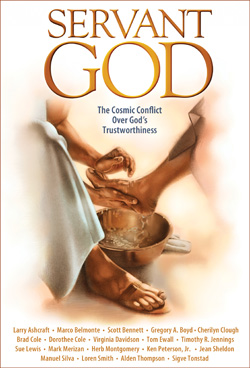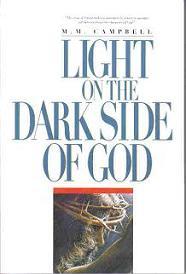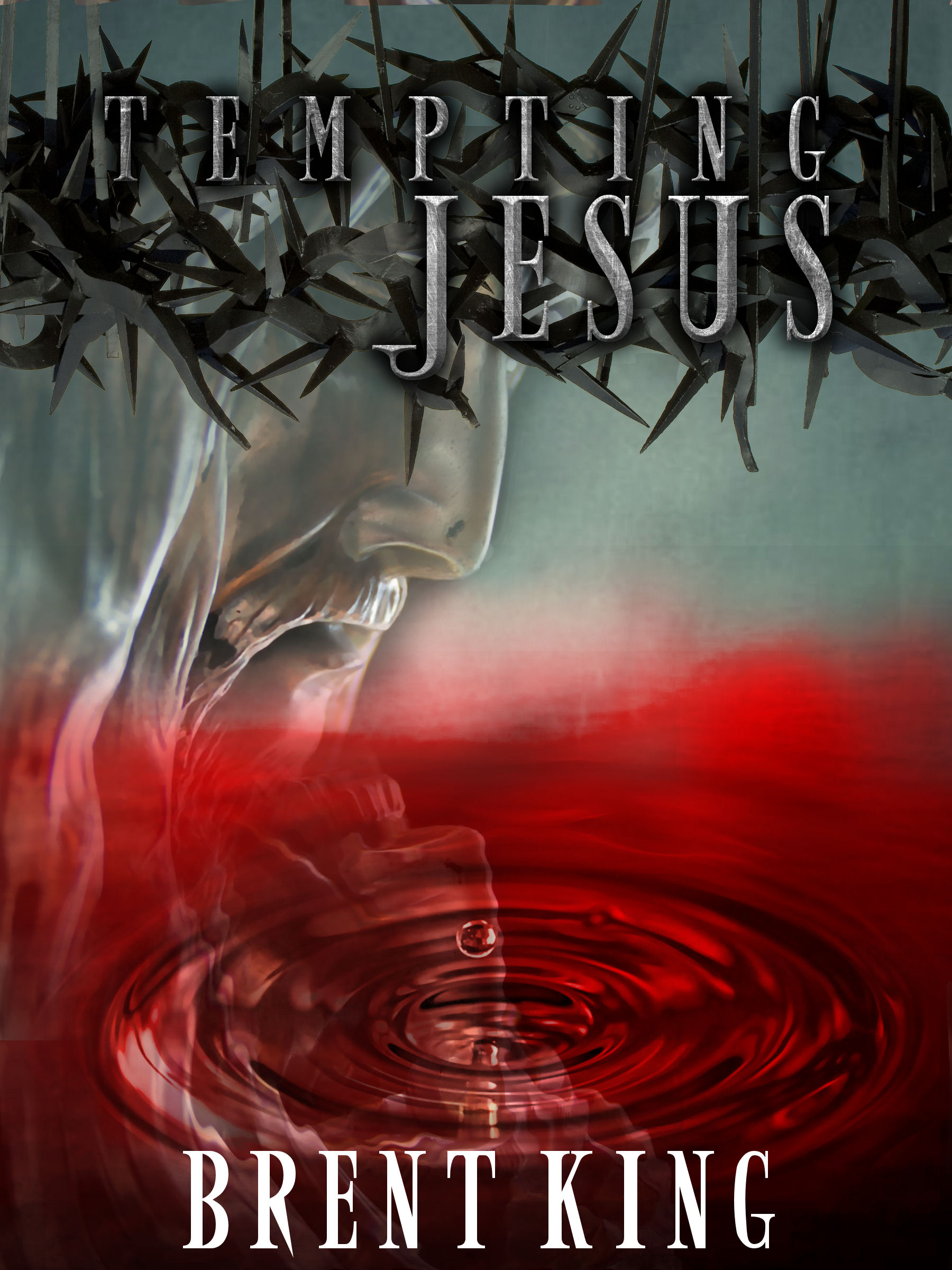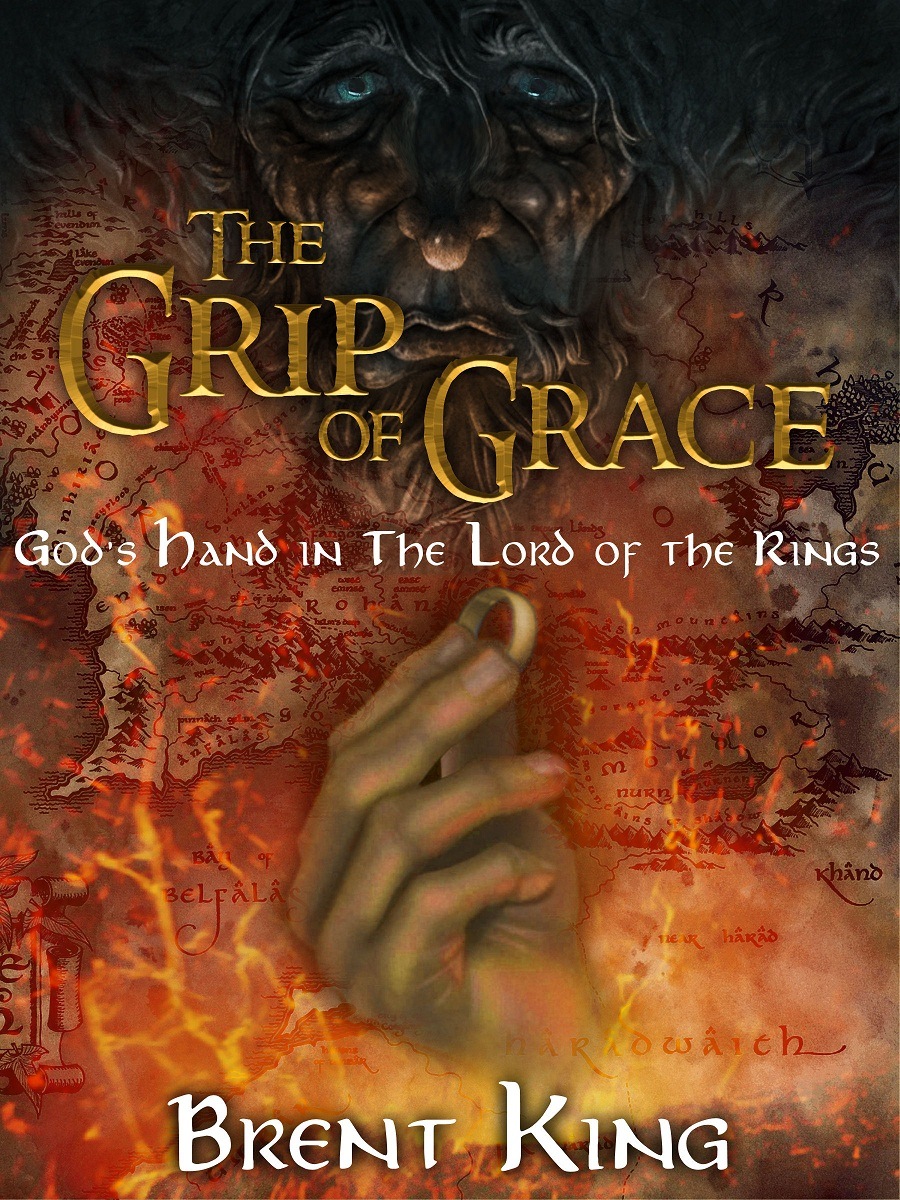A God of Wrath?
 God desires us to trust in Him, but how can one love and trust a god of wrath, a divine power that so many see as vengeful, exacting, and harsh? So often He has been portrayed as severe, vindictive, and hostile. Yet in my understanding, God is not a god of wrath. Here I want to paint the picture I see of Him.
God desires us to trust in Him, but how can one love and trust a god of wrath, a divine power that so many see as vengeful, exacting, and harsh? So often He has been portrayed as severe, vindictive, and hostile. Yet in my understanding, God is not a god of wrath. Here I want to paint the picture I see of Him.
Importance of God’s Character
In Behold Your God, FT Wright says, “The question of God’s character became the most critical element in the mission of Jesus and the fate of the Jews. They believed the Messiah would exalt them by use of the sword. They saw God as the vengeful, destroying One of the Old Testament. Their concept of that God led them to believe that the God of the New Testament would behave the same way. The fact that He didn’t was the major factor in their rejection of Him.
Their misunderstanding of God’s character went like this:
He was a Jew like they were. He was sent as the messiah to the chosen and favored people. He had the power. Therefore it was His duty to use that power to favor them. If He refused to do it then He was nothing short of a traitor to His own. They found Him guilty of treason and determined to be revenged. Because they possessed the character that they believed He had, they did to Him, with the power at their command, what they believed He should have done to the Romans. To accomplish this, they accused Him before the Romans of seeking to make Himself to be what they had actually tried to make Him—the king of the world.”
But Jesus loves the Romans and Egyptians and Babylonians as much as the Jews. The character of God was the most critical element in His mission and in the fate of the Jews. It is still the most critical issue in the mission of Christ in our lives and our fate.
God’s Unchanging, Benevolent Character
Jesus is the complete and full revelation of God. There is no other way to know God except by looking at Him. Even the angels in heaven and the all of those on unfallen worlds throughout the universe, who have been in His presence for countless thousands of years, were stunned when they saw the life and death of Christ on this earth. Before He came they had a much dimmer understanding of what God was actually like and where the depths of love could go.
God did not follow a certain line of behavior before the entrance of sin and then, when sin appeared, engage in activities utterly unknown before the uprising of evil. What we are looking at in the life and death of Jesus may be a revelation to us, but it is nothing new to God. He has always been like that. George MacDonald says that “when he died on the cross, he did that, in the wild weather of his outlying provinces in the torture of the body of his revelation, which he had done at home in glory and gladness.”
God is not bound to the law but it is the other way around—the law is bound to Him. It is a natural expression of what He is and therefore it is not possible for Him to behave in any other way. Jesus said that if we have seen Him, we have seen the Father. So if Jesus is not a god of wrath, then the Father is not a god of wrath either, and never has been or will be.
Some people see God as needing to revise His methods when sin came. In their view, a hypothetical conversation between Christ and the Father at the time of the flood would go something like this:
 “In the beginning We did undertake to fight this great controversy out on the basis that righteousness could stand on it own merits. But now it is clear that sin has reached such proportions that it is on the verge of world takeover. At the moment We only have eight subjects remaining and in a short time, these too, will have died or passed into Satan’s camp thus making him the total victor in this struggle. So We must now act by coming to the rescue of righteousness. Let Us step in with Our limitless, infinite powers and obliterate the entire side standing for Satan. We will preserve only Our own people and thus make a complete, fresh start. Thereafter, We will maintain the use of force in appropriate places to ensure that Satan will never again bring the world to this same crisis point.” – taken from Behold Your God by FT Wright
“In the beginning We did undertake to fight this great controversy out on the basis that righteousness could stand on it own merits. But now it is clear that sin has reached such proportions that it is on the verge of world takeover. At the moment We only have eight subjects remaining and in a short time, these too, will have died or passed into Satan’s camp thus making him the total victor in this struggle. So We must now act by coming to the rescue of righteousness. Let Us step in with Our limitless, infinite powers and obliterate the entire side standing for Satan. We will preserve only Our own people and thus make a complete, fresh start. Thereafter, We will maintain the use of force in appropriate places to ensure that Satan will never again bring the world to this same crisis point.” – taken from Behold Your God by FT Wright
To believe that God acts like this doesn’t fit the facts. Yet that is how most people see Him acting. Satan is the one who represents God as severe and tyrannical in this way. Jesus presented to men a picture exactly the opposite of this. God could have destroyed Satan and his sympathizers, but it is not in God’s character to overcome rebellion by force. Compelling power is found only in Satan’s government. God’s authority rests on goodness, mercy and love. Love cannot be commanded by force.
Man’s Choice
Since God doesn’t use coercive force and grants creatures absolute freedom to choose, then this means that God has placed Himself where He cannot punish those who do what He said they could do: choose another master if they wish.
Yet there is a problem. God made the massive and unintelligent powers of the universe for our comfort, stimulation and enjoyment, but they also contain the potential for destruction. God is the only one who can create and then control the forces of the universe. There is not one of us—angel or man—who can keep those mighty powers under perfect control. Therefore, it is essential that no other god be placed in God’s position as the Controller, Guide and Sustainer of these colossal powers. This would bring on a holocaust of destruction. To turn away from the source of life is to choose death. When a creature does this, it is not God who is killing, but rather the creature choosing inevitable death. It is not God’s fault.
God Does Destroy
But, you say, doesn’t God Himself say that He destroys people? Yes, He does. Therefore it is the truth that God does destroy. We can only conclude that His way of destroying is altogether different than man’s way. God is not like us. “For as the heavens are higher than the earth, so are My ways higher than your ways and my thoughts than your thoughts.” Isaiah 55:8,9
So how does He destroy? In a nutshell, He destroys by trying to save and by not forcing His presence where it is not wanted. God comes to man in one role only, which is as a Savior. Yet the effect of that effort is not always a saving one. With the majority, the effect is to harden them in rebellion (like Pharaoh of old) and to cause them to withdraw themselves from the voice of loving entreaty. Thus God destroys by trying to save. The more He exerts His saving power, the more men are driven by their rejection of it to destruction. The gospel truth ruins if it does not save! It is in this sense that He destroys.
If man drives God away and deprives Him of any possibility of remaining unless He forces His presence then how can anyone say He is a god of wrath or a destroyer? He acted as a savior and a savior only. He is life and when we force that life to turn away, then death is our lot. He has no other choice but to leave us to our destruction.
There are a lot of good examples of this in the bible. One is of King Saul. Remember, he killed himself by falling on his own sword. But the bible says, “Therefore He (the Lord) slew him.” This is not the way we would use the words, is it? We would say Saul slew himself. But God is a gentleman. He doesn’t blame things on others. This is His universe, His-story, and thus He takes ultimate responsibility for things that aren’t even His fault.
When we destroy we move towards the victim with a weapon in our hands. God carries no weapons but withdraws, laying down control of the destructive powers. God moved away and Saul, left without protection, died. It was the same with the flood, Sodom, all God’s dealings with ancient Israel, the destruction of Israel, etc. God does not stand toward the sinner as a god of wrath—an executioner of the sentence against transgression—but leaves the rejecters of His mercy to themselves, to reap what they have sown.
 The Revelation of the Cross
The Revelation of the Cross
Probably the best and most awesome example of this is what happened to Jesus at the cross. To see how the sinner dies one need only look and see how Jesus died. In paying the price for our sin, He died in the same way man will die if he remains in sin. He received the full outpouring of the wrath of God. Yet the Father did not slay His Son with fire or bolts of lightning. It was sin that slew Him. The Father simply withdrew from the Son and left Him to perish because there was nothing else He could do! Can you imagine the grief of the Father? Jesus had been His intimate companion from eternity past.
Remember His words on the cross? “My God, my God, why have you forsaken Me?” So men will never find God waiting as their executioner, as a god of wrath. Satan makes it appear that He does, but it is not so. The cross of Calvary proves that. Sin is the destroyer that awaits the condemned sinner. Man places himself under its obliterating power by his total rejection of God whom he replaces with another god who has no power to sustain and protect him.
God is not a Criminal
Another reason I cannot see God as a destroyer is that He is not a criminal. Many see God acting just like a criminal when he dealt with Pharaoh. You know, like He hit him hard and waited for him to concede. Then, when Pharaoh resisted, He hit him again, and again, and again, until He broke him. If God’s methods are the same as a criminal, then do His intentions make them different? In other words, the means used by the criminal are unjustified because his ends are selfish, but the same means used by God are justified because the end is unselfish?
The problem is that once this line of reasoning is established, any crime can be justified. During the Dark Ages millions of fine people were martyred on the basis of this rationale. In God’s kingdom and under His principles the end can never justify the means.
“For My thoughts are not your thoughts, neither are your ways My ways says the Lord.” Isaiah 55:8
God Goes the Second Mile
So I have come to see God not as a god of wrath but as a savior and a savior only. The devil is the destroyer. In His saving work, God goes the second mile with His people and does not leave them even if they make choices out of His will and not consistent with His character. In fact, He never leaves us. It is we who leave Him and, though He is a gentleman and takes responsibility for withdrawing, we are ones who ultimately flee from Him into the Abaddon of sin. It is sin that kills, not God. Even when we push Him away, to our destruction, He is still there. In the end, I see a God who holds the lost in His arms and grieves them like one would a lost lover.
If you think about it, when we sin, God has only a few choices:
- Disown us
- Force us
- Enable us
- Act as a savior
His only option, consistent with His character, is to act as a savior and go the second mile with us just like He taught us to do with each other. When He is unable to keep His children from making wrong choices (as with ancient Israel when they picked up the weapons of the dead Egyptians at the Red Sea instead of trusting God to protect them or chose a king to replace God), He still works with them to try to save them from the worst effects of those decisions. He can never forsake us and He will always remain with us to the extent we will have Him in our midst.
In this way He is much misunderstood and seen as a god of wrath, especially in the Old Testament. A story about a father and son illustrate it well:
A father raised his son to love life and to hate weapons that kill. Yet when his son got older, he was influenced by his peers and insisted on buying a gun. His father was distraught, but seeing that there was no persuading him, he decided to at least show his son how to operate a gun safely for his protection. If people who were watching saw the father teaching his son how to operate a gun what do you think they would think? “Oh, the father has changed his mind about killing and guns. See, he is training his son to kill.”
As we look at God dealing with His people throughout time we see the same thing happening. God’s actions in going the second mile or His further work of salvation with us make God appear to have changed. His continued effort to save is viewed all too often as His turning into a destroyer, but God has not changed and He loves us so much that He is loath to let us go.
A God of Wrath or A Savior God?
I know that the vast majority of Christendom believes that God is the one who executes judgement. With terrifying power wielded in His own hands He rises to perform “His strange act”. He wipes the rebellious from the face of the earth, thus asserting His will by the naked use of destructive force, convincing men that they must obey Him or perish.
I can no longer see God such a god of wrath. Instead, I see God as a loving savior who could/would never destroy any of His creation. It is not in His character. It will be seen in eternity that none of the responsibility of the death of His creation can be even remotely blamed on Him. He is the Creator and the Restorer and never the destroyer.
Christ will never abandon those for whom He has died. We may leave Him and be overwhelmed with temptation and destruction, but Christ can never turn from one for whom He has paid the ransom of His own life. If we are lost at last, it will be because we drove Him out of our life and would not have Him. Then, as a true gentleman, he respects our wishes to walk away. Even then He does not turn from us, but lets us walk away into oblivion. Even as He watches us die forever His hand is yet outstretched toward us.
 Listen to His broken heart. He cries out with anguish that only a lover can know, who bends over the lifeless body of His beloved:
Listen to His broken heart. He cries out with anguish that only a lover can know, who bends over the lifeless body of His beloved:
“Oh, how can I give you up?
How can I let you go?
….My heart is torn within me,
and my compassion overflows.” Hosea 11:8
“Therefore My heart wails for Moab like flutes…” Jeremiah 48:36
The healing that we can receive from God can never be found if we see him only as our executioner when we step out of line. He is not a violent god of wrath. He is a savior and a savior only. We are always welcome to come to him for strength and healing.
For further reading on this subject:
Behold Your God by FT Wright
Light on the Dark Side of God by MM Campbell
The Cross Was Hell by Loren James
The Wrath of the Lamb by Brad Cole
The Wrath of the Lamb Audio Download by Brad Cole (right click and select “save link as”)











